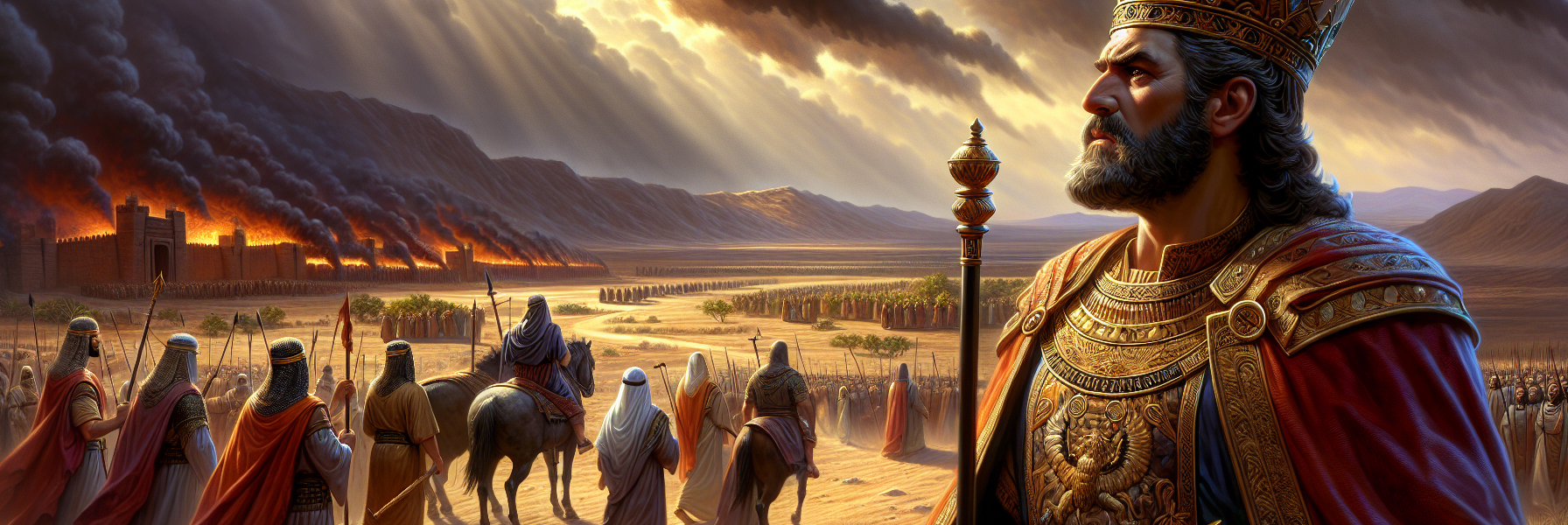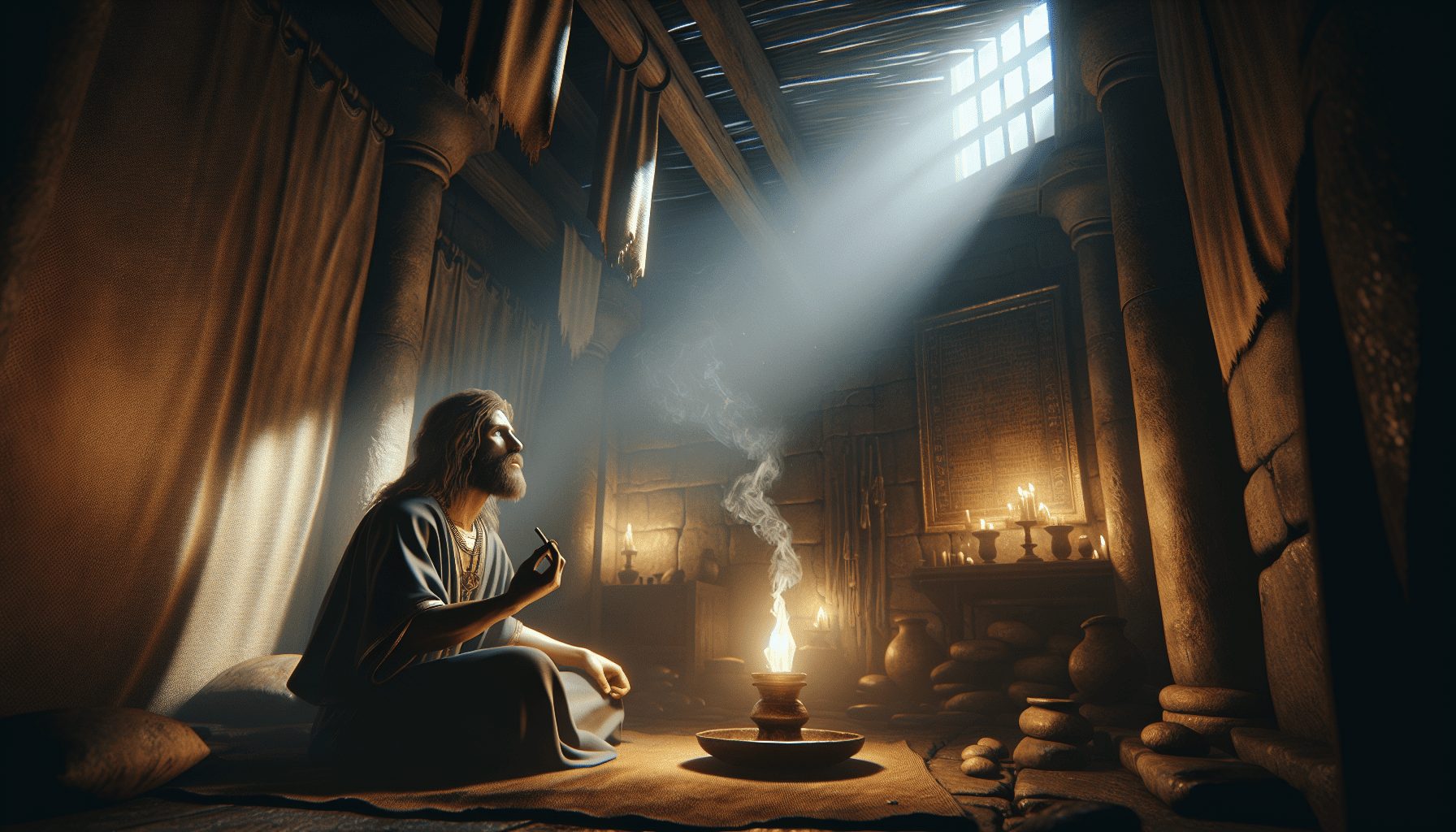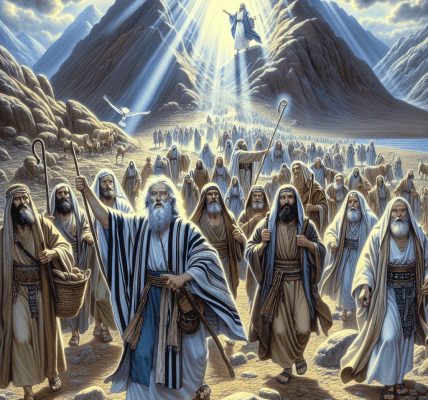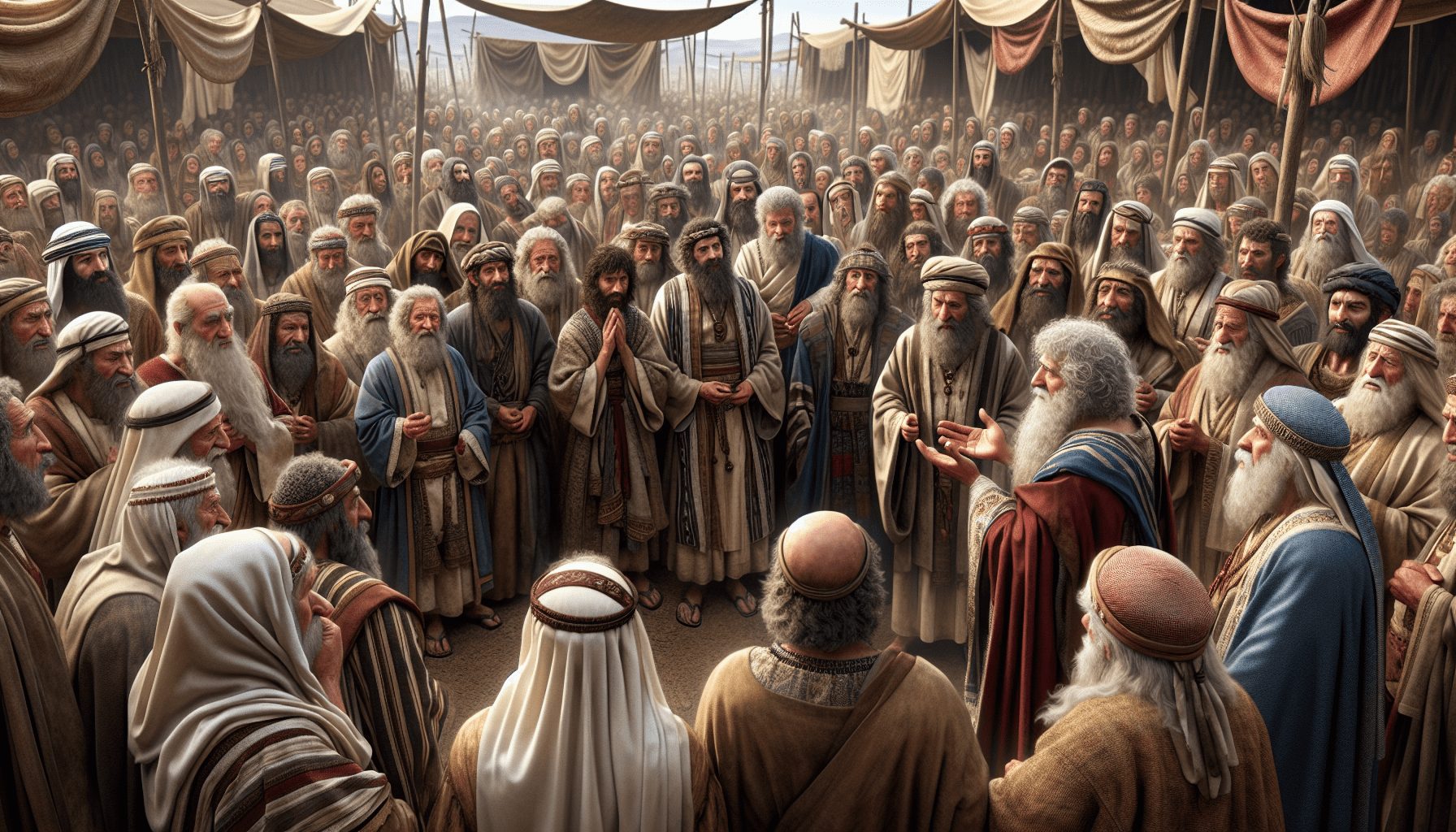**The Crossing of the Jordan**
The sun had not yet risen over the camp at Shittim, but the people of Israel were already stirring. A hushed excitement filled the air as men, women, and children gathered their belongings, their hearts pounding with anticipation. For forty years, their parents had wandered in the wilderness, but now, under the leadership of Joshua, they stood on the brink of the Promised Land. The Jordan River lay before them, its waters swollen from the spring rains, a final barrier between them and Canaan.
Joshua, the faithful servant of Moses, had spent the night in prayer, seeking the Lord’s guidance. As dawn broke, he summoned the officers of the people and gave them clear instructions:
*“When you see the ark of the covenant of the Lord your God, and the Levitical priests carrying it, you are to set out from your positions and follow it. But keep a distance of about two thousand cubits between you and the ark—do not go near it, so that you may know the way you should go, for you have not passed this way before.”*
The people listened intently, their eyes fixed on Joshua. The ark of the covenant, the golden chest that symbolized God’s presence among them, would lead the way. It was not merely a symbol—it was the very throne of the Almighty, the seat of His power and glory. To follow it was to follow the Lord Himself.
As the priests lifted the ark onto their shoulders, a reverent silence fell over the camp. The Levites moved forward, their steps steady and sure, and the multitude of Israel fell into line behind them. The ground trembled beneath the feet of hundreds of thousands—warriors, families, flocks, and herds—all moving as one toward the river’s edge.
The Jordan was at flood stage, its currents strong and treacherous. To human eyes, crossing seemed impossible. But Joshua had declared the word of the Lord:
*“Consecrate yourselves, for tomorrow the Lord will do wonders among you.”*
And so they had prepared their hearts, purifying themselves for the miracle that was to come.
As the priests reached the riverbank, their sandals touched the water’s edge. The moment their feet dipped into the rushing current, a divine power surged forth. Upstream, far in the distance near the city of Adam, the waters began to pile up in a great heap, as though an invisible dam had been raised. Downstream, the river rushed away into the Dead Sea, leaving behind a vast, dry riverbed.
The priests stood firm in the middle of the Jordan, the ark resting upon their shoulders, as the entire nation of Israel crossed over on dry ground. Not a single soul slipped. Not a single cart wheel stuck in the mud. The Lord had made the way clear.
Twelve men, chosen from each tribe, took stones from the riverbed where the priests stood and carried them to the other side. There, they would build a memorial, a testament for generations to come. When their children asked, *“What do these stones mean?”* they would tell of the day the Lord held back the waters, just as He had done at the Red Sea, proving once again that He was mighty to save.
As the last of the Israelites stepped onto the western shore, Joshua commanded the priests to come up from the river. The moment their feet left the Jordan, the waters rushed back into place, roaring once more in their course.
The people stood in awe, their faces turned toward Jericho, the first stronghold of Canaan. They knew the battles ahead would be fierce, but on this day, the Lord had shown them His power. He was with them, just as He had promised.
And so, with hearts full of faith, Israel prepared to take the land. The God who had parted the waters would surely fight for them.




